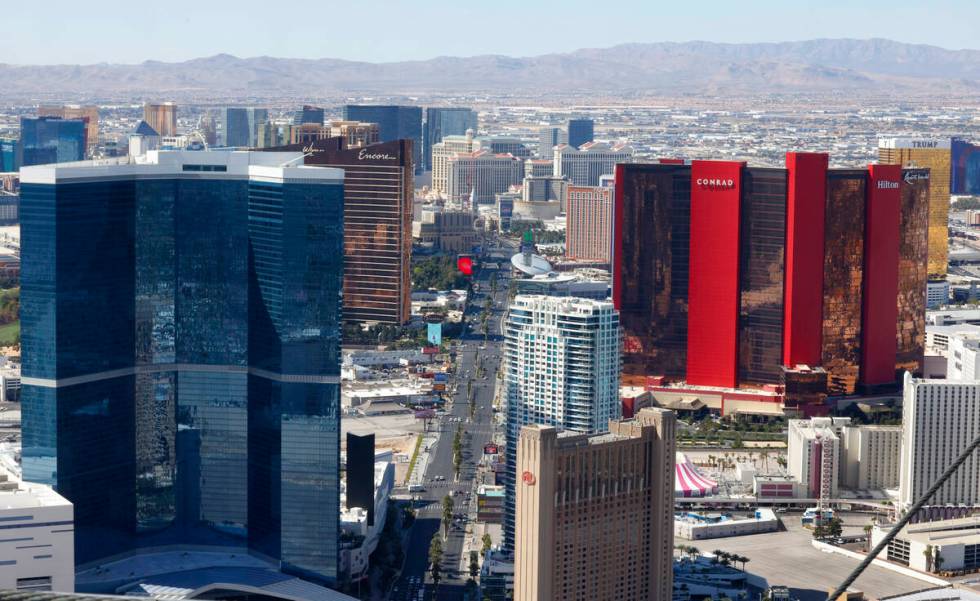The origins of Paradise in Las Vegas

Paradise is an unincorporated township that encompasses large swaths of the Las Vegas Strip and has a unique history regarding its name dating back to the turn of the 20th century.
Technically UNLV’s campus, Harry Reid International Airport and most of the casinos on the Strip are not within the city of Las Vegas, but located within Clark County and Paradise.
Paradise runs from Sahara Avenue to the north, Decatur Boulevard to the west, Nellis Boulevard to the east and Cactus Avenue to the south. Clark County has Paradise’s population dropping year over year from 2021 to 2022, and currently sitting at approximately 189,499 people.
Paradise’s origins go back to the 1950s as many of the major casinos were built outside of the city limits but within county territory as a way to avoid municipal fees and taxes, said Michael Green, UNLV professor and chair of the history department in a previous interview.
According to a 2010 article published in Anthem View, a community newspaper that was previously published by the Las Vegas Review-Journal, two unincorporated townships were created in the 1950s, Paradise A and Paradise B.
“I was told by George Franklin (a county commissioner at that time) that they had to make it into two districts because the border had to line up with the school districts,” said UNLV history professor Eugene Moehring to Anthem View.
The city of Las Vegas tried to annex the Strip and to avoid this the casinos supported legislation that created unincorporated townships, the first being Paradise, then Winchester and Spring Valley.
Paradise could have become a part of Las Vegas with a vote however it’s remained an unincorporated township and Gus Greenbaum, who helped run the Flamingo after Bugsy Siegel died was then known as the “unofficial mayor of Paradise,” according to Green.
Green, in speaking to Anthem View, said the origin of the name for Paradise is an interesting story.
“You can make the argument that the first real nightclub on the Strip was the Pair O’Dice, which later became the 91 Club and then the Last Frontier,” he said to the outlet. “It makes for a charming story to say Paradise was named for that, but if anything, it’s the other way around. The name Paradise was used for that area for a long time.”
Maps of the valley dating back to the early 1900s called the southern part of the valley, where most of the farming took place during that time, referred to the area as “Paradise Valley” as it encompassed lush vegetation.
The Paradise Dunes, which was about 10 square miles, was also located within this area. The last remaining section of the dunes is now in what is now called Sunset Park.
Contact Patrick Blennerhassett at pblennerhassett@reviewjournal.com.